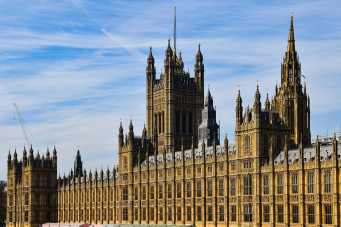
How ITV have reduced their reliance on advertising revenue
When ITV published their 2015 results last month, the figures looked good.
All parts of the business are performing well and the company’s chief executive, Adam Crozier, described ITV Studios – the production arm – as “the world’s most profitable production business outside the US studios”.
“It’s in rude health at the minute,” he said. “I can’t think of another content company growing at the rate we are.”
And while its advertising revenues are decent, ITV is looking to reduce its reliance on income from this source.

Despite being the only British commercial broadcaster able to offer advertisers a prime time audience of more than ten million viewers – programmes such as I’m a Celebrity… Get Me Out of Here offer the numbers that big-spending advertisers covet – advertising spends so far this year have been less than impressive.
But that’s expected to change come the summer, when England, Wales and Northern Ireland all compete in the Euro 2016 football championship in France.
Crozier, who is a former CEO of the Football Association, said: “It’s pretty normal that advertising money will shift around the year depending on when the major sporting tournaments are.”
Even so, ITV are looking to reduce their reliance on advertising revenue.
But how?
Non-advertising sales now account for 49 per cent of ITV’s total revenues (which stood at just under £3 billion).
Online, the company’s still growing and accounts for a relatively small proportion of viewing and the business generally but The Hub, the online centre for all ITV channels and services both live and on demand, is available across 27 platforms and has had what the company calls “a really encouraging start”. ITV says The Hub has 13 million registered users.
The Pay and Interactive arms of the business are also profitable.
Together, online, pay and interactive revenues represented £188 million in 2015, up nearly a quarter (23 per cent) on the previous year.

Sales of programmes made by ITV Studios have increased (this department now accounts for more than 40 per cent of revenues), and ITV’s acquisition of several production companies will bolster this effort, most notably the £355 million purchase of Talpa Media, makers of The Voice.
“The acquisition is a further milestone in the company’s strategy of building an international content business that creates and owns entertainment formats and dramas that sell internationally, and significantly strengthens ITV’s position as a leading producer in Europe.
Established by Big Brother creator John de Mol, Talpa is a fast growing Netherlands based production and distribution business, focused on developing new formats that attract large audiences and have significant global commercial potential.” (source)
And earlier this year, former ITV Studios managing director Kevin Lygo replaced Peter Fincham as ITV’s director of television.
“A channel’s programming is only as good as the choices the commissioning teams make, and so it is vital to have the best people possible in these crucial positions,” said Lygo, at a time of several key changes in commissioning personnel.
Viewing habits
Despite the impressive inroads that OTT providers such s Netflix and Amazon Prime have achieved in recent years, traditional linear TV viewing remains resilient.
On average, say ITV, viewers watch 216 minutes of television a day, compared to 222 minutes in 2004, and the company estimates that 81 per cent of television viewing is live.
A possible downside?
As in any industry, a strong set of figures attracts bigger players. And ITV’s accounts are among a number of factors to draw interest. Others include:
- Its original programming
- Key sports broadcast rights
- A free-to-air platform
- Large mainstream audiences
All these would appeal to a business such as BT, according to predictions by research firm CCS Insight, who predict that BT will buy ITV by 2018 in an effort to “broaden its rights position beyond sport”.
Paolo Pescatore, of CCS Insight, said:
“A potential acquisition will allow BT to differentiate its offering through original programming which is proving to be a key battle ground for all web providers such as Amazon, Netflix and others. It would also give BT a free-to-air platform to promote its paid-for BT TV service.”
Crozier, however, predicts further acquisitions made by his employer, and foresees a strong future in ITV’s own right:
“We’ll continue to build scale and to capitalise on the strong demand for high quality content that travels, with a particular focus on investing in creative talent and scripted projects, and working with more channels and platforms in the UK and internationally.”

Netflix, Paramount and Warner Bros.: What the Deal Means for the Broadcast and Production Industry

How the Employment Rights Act 2025 Is Reshaping the Freelance Market
